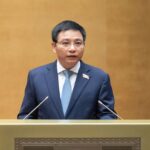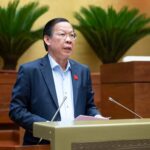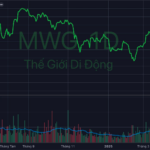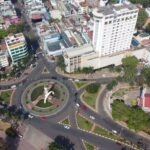National Assembly Discusses Draft Law on State Capital Management and Investment in Enterprises
On the morning of May 13, the National Assembly (NA) continued its 9th session with a discussion on the draft Law on State Capital Management and Investment in Enterprises.
Specific sectors and investment scope assigned
According to Minister of Finance Nguyen Van Thang, a fundamental change in this law amendment is that the state will exercise rights, obligations, and responsibilities corresponding to its proportion of capital contribution in state-owned enterprises (SOEs), treating them equally as other investors, and refraining from direct intervention in the SOEs’ production and business activities.
Regarding the scope of state capital investment in enterprises, many opinions suggested that it should only focus on investing in a number of enterprises operating in critical and essential sectors or areas that other enterprises do not invest in. As per Deputy Pham Van Hoa (from Dong Thap delegation), the state’s capital investment must be focused on key areas; tasks that can be done by the private sector should be left to them, while tasks that pertain to national defense, security, and social welfare must be undertaken by the state.
Concerning investment activities, the bill does not restrict SOEs from investing and operating in the real estate sector. Deputy Hoa suggested that this provision be carefully considered, as in the past, some large state-owned corporations and companies that invested outside their main field of operation encountered difficulties, with some cases even ending up in legal troubles. “We must consider this depending on the time and location, and which enterprises are allowed or not allowed to operate in real estate,” said Mr. Hoa.
Disagreeing with the view that the state-owned sector should not do what the private sector can do, Deputy Nguyen Van Than, Chairman of the Association of Small and Medium-sized Enterprises, suggested that SOEs should be engaged in key economic sectors related to national defense and security, such as coal, electricity, and oil and gas. “SOEs have to bear the responsibility for social welfare. There are areas where private enterprises won’t venture, but SOEs still have to, while private enterprises will only get involved if there are profits to be made,” said Deputy Than. However, the leader of the Association of Small and Medium-sized Enterprises also agreed with the opinion that specific business sectors and investment scopes should be assigned to SOEs to prevent them from “getting distracted by a hot real estate market while performing their main tasks.”
Deputy Tran Hoang Ngan (from Ho Chi Minh City) assessed that this amendment has created favorable conditions for SOEs to have more autonomy and self-determination. Regarding the provision on investing state capital to supplement the state’s capital contribution in joint-stock companies and limited liability companies with two members or more with state capital, Deputy Ngan suggested that this should not be encouraged. The reason is that, in the past, we have promoted equitization and divestment, and if the state participates more, it may lead to losses.
“If there is any investment, it should be in the development of science and technology, innovation, and national digital transformation,” suggested Deputy Tran Hoang Ngan.
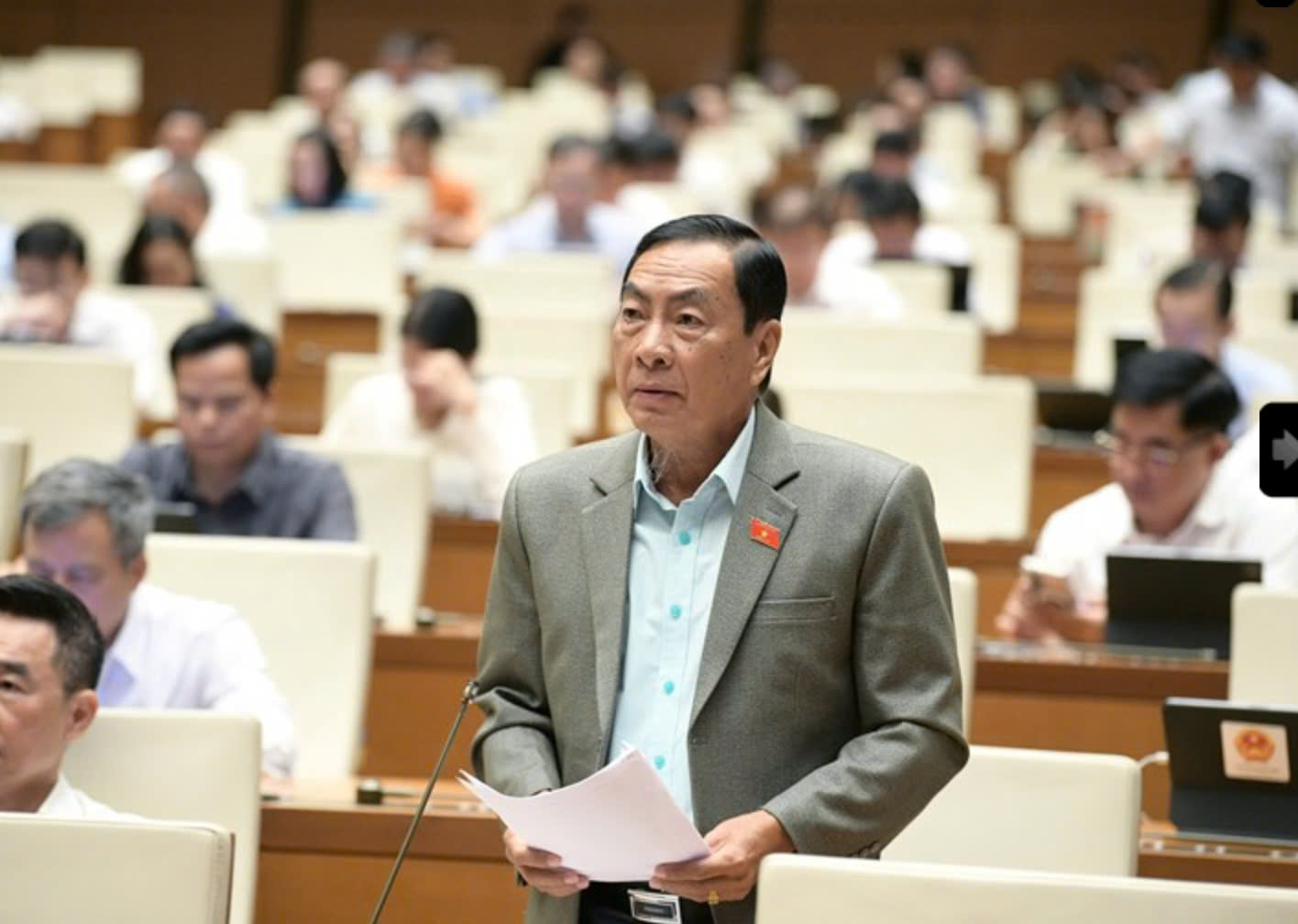
National Assembly Deputy Pham Van Hoa (Dong Thap) expresses his opinion at the meeting on May 13. Photo: Ho Long
Concerns about the potential misuse of the “acceptance of risk” regulation
In the afternoon of the same day, during the discussion on the draft Law on Science, Technology, and Innovation, Deputy Nguyen Thi Viet Nga (from Hai Duong delegation) expressed her support for legalizing the spirit of “accepting risk” in science, technology, and innovation. However, she believed that without a transparent mechanism, it could be easily abused, so it is necessary to clarify the boundary between acceptable risks (model errors, experimental failures, etc.) and unacceptable violations (fraud, poor research ethics, etc.). Along with this, a risk assessment council with in-depth expertise and independence should be established. A separate fund for venture research should also be set up, operating under the mechanism of “risky public investment,” with evaluations based on creative potential rather than solely on tangible outputs.
Deputy Tran Khanh Thu (from Thai Binh) assessed that the content regarding the mechanism of “accepting risk” is still vague. In addition, the draft law assigns the Government to detail this matter, but it only emphasizes that the Government will specify the criteria for determining risks and evaluating compliance without mentioning the process and regulations.
Also, according to Deputy Thu, new research projects and innovative ideas can arise directly in the production process. “It is necessary to supplement the basic principles on the criteria for assessing scientific risks and to have a process for risk assessment and approval. The competent unit also needs to clearly determine the risks in the guiding documents for implementing the law,” suggested Deputy Thu.
Proposal to Continue Reducing VAT
On the same day, the NA heard the Government’s presentation of the draft Resolution on exempting tax on agricultural land use and the draft Resolution on reducing VAT. According to the proposal, there will be a 2% reduction in the VAT rate for groups of goods and services currently subject to a 10% rate, except for a few groups such as telecommunications, financial activities, banking, securities, insurance, real estate business, and metal products. The implementation period is from July 1, 2025, to December 31, 2026.
Proposal for Special Mechanisms for Hai Phong City
Presenting to the NA the draft Resolution of the NA to replace Resolution No. 35/2021/QH15 on piloting some special mechanisms and policies for the development of Hai Phong City, the Government clarified that the special policies were constructed according to six major groups, including investment management; financial management and state budget; planning, urban, resource, and environmental management; management of science and technology and innovation; and income of officials, civil servants, and public employees.
The draft resolution also proposes the establishment of a free trade area in Hai Phong City to pilot breakthrough special mechanisms and policies.
A 2% Cut in VAT Proposed for Fuel, Washing Machines, and Microwaves
“On May 13, at the 9th session of the 15th National Assembly, the Government proposed to further reduce the value-added tax (VAT). This bold proposal aims to stimulate economic growth and ease the financial burden on businesses and consumers alike.”
The City of Ho Chi Minh Proposes to Continue Implementing Special Mechanisms Post-Merger Until 2030
The Ho Chi Minh City People’s Committee has proposed to the Central Government to consider and approve the extension of the special mechanism for the city as per Resolution 98/2023 until the end of 2030.


